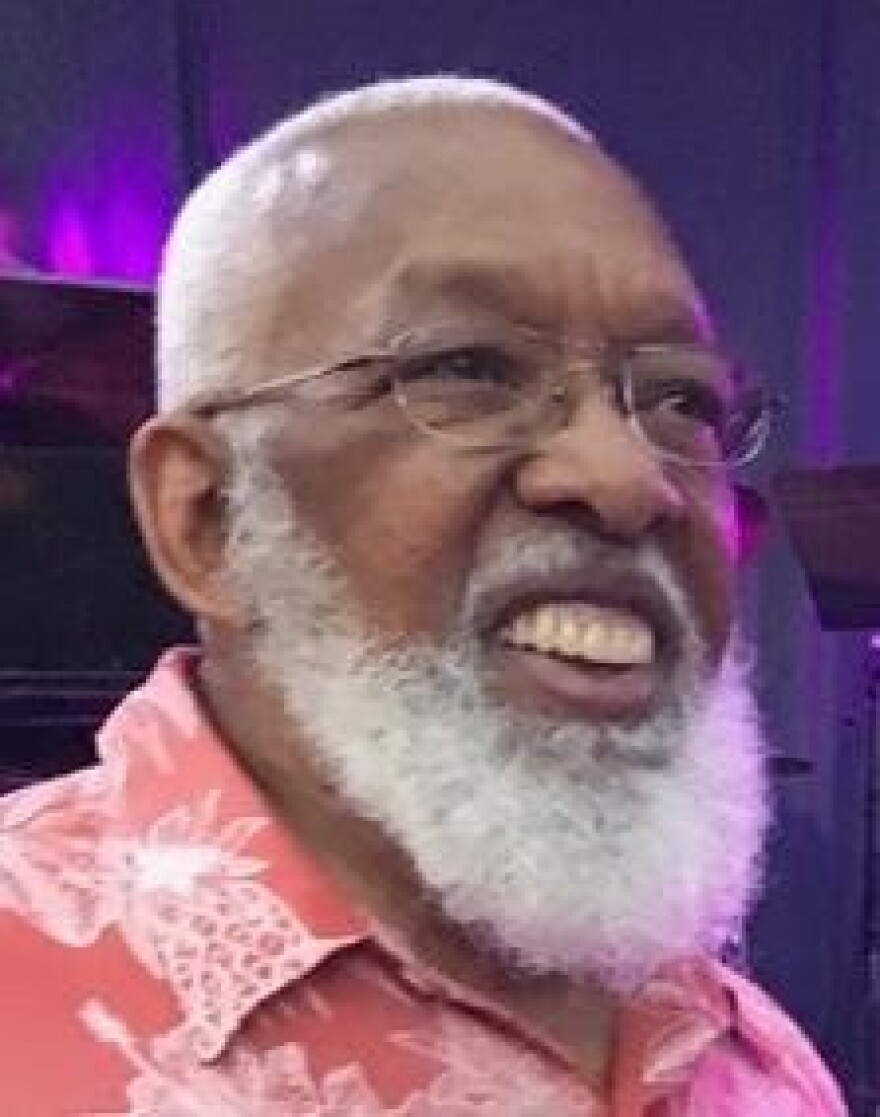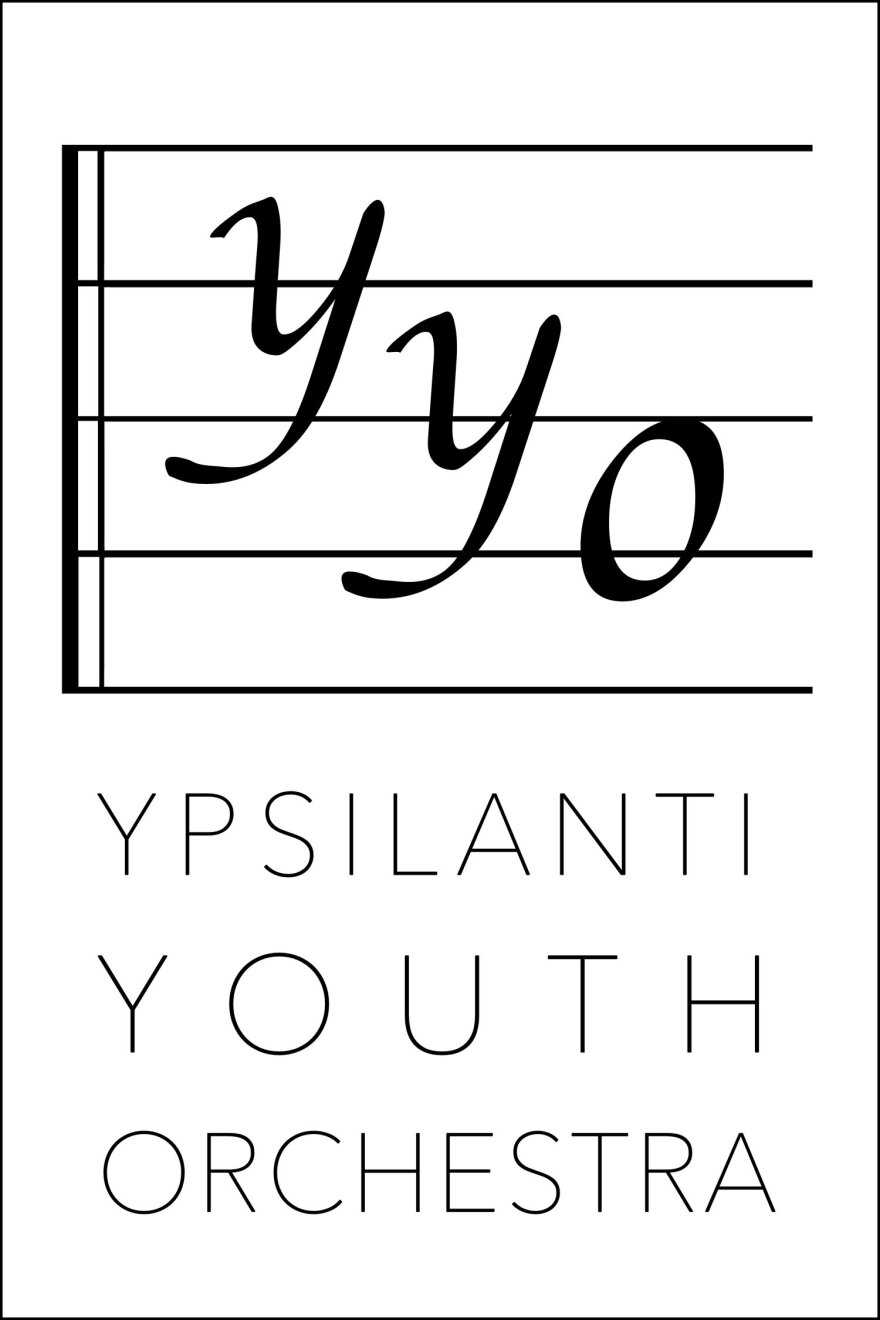Creative industries in Washtenaw County add hundreds of millions of dollars to the local economy. In the weeks and months to come, host Deb Polich, the President and CEO of Creative Washtenaw, explores the myriad of contributors that make up the creative sector in Washtenaw County.

ABOUT WILLIAM R. HAYES:

Founder and Music Director Emeritus of the Ypsilanti Youth Orchestra. Mr. Hayes has a passion for music. Whether it is composing, arranging, and adapting scores and parts for the YYO, arranging for and directing the crowd-pleasing Cadillac Area Symphony and the Traverse City Civic Players, re-creating classic rags for River Raisin Ragtime Revue, or playing his bass on Sunday mornings at church, this passion influences every aspect of his musical being. He received his Bachelor of Music Education degree from Southern Illinois University and a Master of Music degree from Western Illinois University. In 2011, he was recognized in a Special Tribute from Michigan Governor Snyder and members of the State Legislature for his personal commitment to the many young people who share his love and appreciation of music.
ABOUT VERNA HAYES:

President Emerita of the Ypsilanti Youth Orchestra. Mrs. Hayes comes from a family who highly valued education, and she became a part of this legacy at age four when she was hired at $.05 a day to teach the two children next door to read. Upon graduation from Crystal Negro High School in Crystal Springs, Mississippi she entered Tougaloo Southern Christian College, earning a bachelor’s degree in English, and a master’s degree in English from Emory. During her more than forty years teaching, Mrs. Hayes vowed she would never become an administrator of anything. She has been the president of the YYO since 2005.
ABOUT THE YPSILANTI YOUTH ORCHESTRA:
In 1997, Ypsilanti School District string teacher William R. Hayes, University of Michigan professor of engineering Bernard A. Galler, and pianist Ruth Shanberge were inspired to provide a full orchestra experience for young musicians attending area secondary schools that did not provide that opportunity. They chose to make it free to the students with no formal audition, so that anyone who wanted to play could do so—student “auditioning the orchestra,” in a manner of speaking. One of the goals was to help children learn to appreciate various musical genres and become engaged community members and lifelong learners. After working over a year to develop the concept, rationale, and mission statement, then incorporating, acquiring legal representation, insurance, and 501(c)3 status, they invited secondary school band students as well as Mr. Hayes’ string students to join the new orchestra. Seventeen children performed the first concert of the Ypsilanti Youth Orchestra (YYO) in December 1999.

To help the organization grow after its first six years, beginning string, wind, and percussion pre-orchestra classes were added. The significance of these pre-orchestra classes was obvious when the Ypsilanti School District discontinued its string classes, leaving no assumed source of new students. For two summers, classes were held for a dozen beginning wind and percussion students as part of an annual day camp for low-income families. These students were outfitted with flutes, clarinets, saxophones, and drums. In the fall, most of them joined the small-group classes provided by the YYO. From the outset of the YYO, the Bernard A. Galler String Quartet was a part of the organization, and when students showed interest in playing jazz, the Jazz Ensemble was created. Over the years, several other ensembles were formed. Since 1999, the YYO has performed annual spring and fall concerts, at the University of Michigan and St. Joseph Mercy Hospitals, and at Ypsilanti District Library concerts. For seven years, the orchestra has even marched in the Ypsilanti Heritage Festival parade. The Jazz Ensemble has played many community venues, and is under the direction of guitarist Steve Somers.
Since the YYO has never been a part of the Ypsilanti School District, support from various partners and members of the community has made the program a success. Early funding from corporations, local businesses, service clubs, and, most of all, individual contributions helped keep the organization afloat. The YYO is especially grateful to the Ann Arbor Area Community Foundation and Ypsilanti Area Community Foundation for help with acquiring instruments and other vital expenses. These foundations also included the YYO among a group of non-profit participants in the 2014 Give Local Match Day, which provided the YYO with an asset surplus that it has maintained since that time. The YYO advisory board, the parents, and other stakeholders remember the original mission was to provide a full orchestra experience free of charge to area students who might not otherwise have the opportunity. Now over 220 students participate in the orchestra, pre-orchestra classes, and ensembles, living up to our motto: It’s all for the children.
RESOURCES:
Creative Washtenaw Medals for Arts, Sciences & Humanities + 21st Century Awards
Creative Washtenaw: THE pARTy!

TRANSCRIPTION:
Deb Polich: Welcome to creative:impact on 89 one WEMU. I'm Deb Polich, president and CEO of Creative Washtenaw and your creative:impact host. Thanks for tuning in to hear our conversations about the impact and reach of Washtenaw County's arts and creative industries and the artists and creatives who choose to live here while adding to our local quality of life, place, and economy. We're going to continue our series on creative distinction. Creative Washtenaw is celebrating many people this year after a four-year absence with some of our medals for arts, sciences, and humanities. And I want to welcome today two teachers--inspiring teachers--who definitely have changed lives, especially when they've stepped into a void to fill a need. William Hayes, Bill, a music teacher, and his wife, Verna, an English teacher, did just that by starting and fostering Ypsilanti Youth Orchestra more than 20 years ago. Creative Washtenaw is going to honor Bill and Verna with its Outstanding Service Award at THE pARTy on February 27th. First, though, I am pleased to say that Bill and Verna are in the studio with me, and we are going to hear their story. Bill and Verna, welcome.
Bill Hayes: Thank you.
Verna Hayes: Thank you very much.
Deb Polich: So, Bill, I'd like to start with you. You got to Michigan by way of Illinois and Traverse City. But what brought you to Ypsilanti?
Bill Hayes: It's a long trip. Nebraska, Bermuda, Illinois, Michigan. Traverse City for 17 years. And then, there were medical problems in the family that brought us to Ann Arbor for the medical help that we would get here. And without a job, I saw an ad in the newspaper: a halftime string teacher wanted. So, I applied. And the second semester, I was full time. And it just kept going from there.
Deb Polich: So, teaching at the Ypsilanti schools.
Bill Hayes: Right. [0.0]
Verna Hayes: Excellent. And, Verna, how about you as an English teacher?
Verna Hayes: How did I get here?
Deb Polich: Yeah.
Verna Hayes: Well, I came to Michigan when I finished my graduate degree in Atlanta, and I got a job teaching in Pontiac for one year. And then, my daughter was born, and I couldn't start teaching in Ypsilanti because, at that time, the principal that I had been hired to work with told me that he wasn't allowed to have anybody start a semester pregnant.
Deb Polich: Oh, my gosh. Thank goodness we're past that, right?
Verna Hayes: Yes.
Deb Polich: Did you guys meet in the Ypsilanti schools?
Verna Hayes: Yes.
Bill Hayes: Verna had been teaching at West when I came, and we recognized right away that we were two forces. And we became quite good friends. I was married--in a bad marriage. It was getting over. But we communed with each other for ten years before we decided there's something here more than just friendship.
Verna Hayes: I think it was the kids, because the kids would say, "Mr. Hayes, you like Miss Rollins, don't you?" "Miss Rollins, you like Mr. Hayes?" And every year, I would give the kids my phone number to write in their planner, so that if they had a question about homework at night, they could call me. Well, they wrote that phone number down and carved my phone number into his piano.
Deb Polich: What a story!
Bill Hayes: This was one year of seventh grade, and the entire school got to see these two old people fall in love.
Deb Polich: Oh, my gosh! What a great, great story! So, I mentioned that you found a void. You saw a void in Ypsilanti, and you said you were forces. I love that. So, what did you two as forces do to fill that void with the Ypsilanti Youth Orchestra?
Bill Hayes: It was the Music Masters. I was on the board of the Ann Arbor Symphony, and they had come to see what I was doing and so on. And they decided there were some retired string teachers and players in the area, and they would send them to my classroom for one-on-one help with the students. That led to an award from the state for the Ann Arbor Symphony--the Music Masters program. Intergenerational. And it got on that Verna said, "We need to get a full orchestra." Well, I couldn't touch the band. It was an A-class reading. And I couldn't get the students out of the band.
Deb Polich: And there wasn't an orchestra at Ypsilanti High School at that time. There still isn't.
Bill Hayes: No. There's not anymore. No.
Deb Polich: And so, that was the impetus for Ypsi--
Bill Hayes: Well, while I was still teaching, we started the orchestra, and we were getting advanced students from the middle schools and from out of town and so on. And over the years, we had, after I retired and they closed the strings, we had to start our own string program to get students in the string program. A few years later, we added on the wind and brass programs. So, it became as we wanted to become: a full orchestra program with all the classes leading up to the full orchestra.

Deb Polich: And one of the things that I find remarkable about your Ypsilanti Youth Orchestra is that you provided access and opportunities for people without making them pay tuition and likewise. And, Verna, you were involved a lot in the organization of all of that, maybe not right immediately, but became the president of the orchestra. And how was that in doing all that organization and making sure instruments were available and programs were happening, what was that all like?
Verna Hayes: It was on-the-job learning for me.
Bill Hayes: Yeah.
Verna Hayes: I had never done anything toward fundraising. I had never done anything toward organizing a group like that. I started it just before I retired. I had vowed I'd never be anybody's administrator. I retired and became an administrator right away.
Bill Hayes: And a good one.
Deb Polich: Well, you're obviously talented with that debut. WEMU's creative:impact continues. I'm Deb Polich, and my guests are Bill and Verna Hayes, who founded and stewarded the Ypsilanti Youth Orchestra. So, Bill, I read somewhere that you teach by the "soul method," which I kind of love that, too. Soul method. What's that mean?
Bill Hayes: I want children to feel music, not just sing it and/or play it. The years they spent in Traverse City, I realized that music education had become like a book. And you go from page to page, whatever class or level you're in. You just follow that page. And I couldn't do that. I wanted my students to express what they were feeling right now, and I could guide them into starting that. But it's the soul method. They called me the maverick when I was in Traverse City. There was one other teacher who was from, I think, the Hills of Tennessee, and they called her...oh, something Southern. I forget what it was. The hill country or something. But we were both noted for our uniqueness.

Deb Polich: Awesome. Verna, you're an English teacher. Why do you think that music education is important, either for somebody who ends up being a performer in the rest of their life?
Verna Hayes: Music is important because it brings out, as Bill says, the soul. It brings out the inner parts, so that people can, as students, can express themselves. They can express themselves in words. They can express themselves in sounds and become greater. They can become greater.
Deb Polich: And there's also that whole part about being part of an ensemble and working with and feeding off of others, right?
Bill Hayes: We had some very, very sincere regulations. They weren't rules or whatever, but the kids have to respect each other. They had to respect themselves. They had to respect everybody's equipment. There was no horsing around. We came there, and whoever was misbehaving, we had to see to it that you don't destroy somebody else's time. This is two hours on a Saturday morning with your parents here waiting for you. So, this is quality time, and we made it be that.

Deb Polich: So, over the years, the orchestra has reached kids in five counties in southeast Michigan with ethnicities from five continents. And you involved adults also. Remarkable. You retired from the Ypsilanti Youth Orchestra in 2020. And, as you look towards the new leadership of the orchestra, what do you hope they carry forward as part of your legacy?
Bill Hayes: We saw the first live performance since COVID. They had been doing two years of online learning. But to see that they had ensembles and small groups and children that obviously had been taught to play by this new regime, we see the future is well underway. And we're so happy and proud that it is continuing--that it didn't just stop.
Verna Hayes: And one of the things that we really wanted to see was the quality teaching. We wanted to see that it was still tuition-free because there were so many families who were unable to pay to participate. And we wanted to be sure that they were still being reached.
Deb Polich: Such a wonderful legacy. I want to thank you both for being on the show and we're looking forward to celebrating you in a couple of weeks. And so, thank you for being here.

Bill Hayes: Thank you for having us.
Verna Hayes: Thank you for having us. We're glad to be here.
Deb Polich: That's Bill and Verna Hayes, founder of the Ypsilanti Youth Orchestra. Their legacy will be honored with our event coming up on February 27th. Find more about Bill and Verna and the celebration at WEMU dot org. You've been listening to creative:impact. I'm Deb Polich, president and CEO of Creative Washtenaw, and your host. Mat Hopson is our producer. We invite you to join us every Tuesday to meet the people who make Washtenaw creative. This is 89 one WEMU FM Ypsilanti. Public radio from Eastern Michigan University.

Non-commercial, fact based reporting is made possible by your financial support. Make your donation to WEMU today to keep your community NPR station thriving.
Like 89.1 WEMU on Facebook and follow us on Twitter
Contact WEMU News at 734.487.3363 or email us at studio@wemu.org







